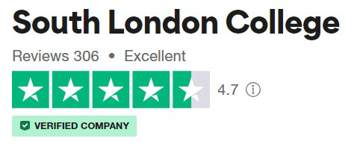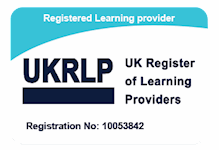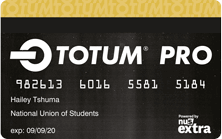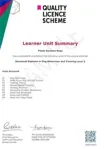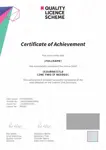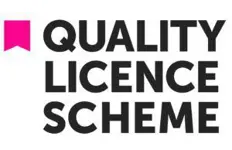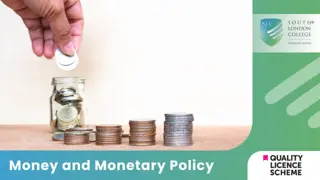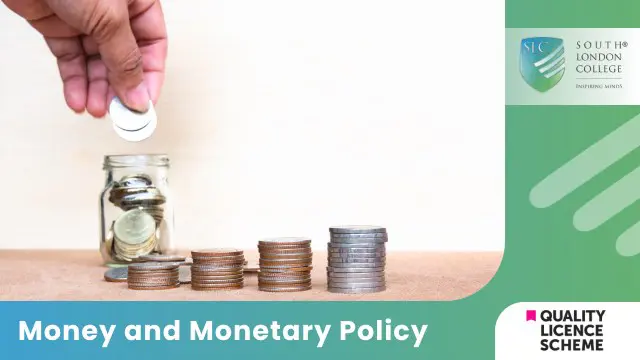
Money and Monetary Policy Diploma
Level 3 Diploma | Endorsed by Quality License Scheme | QLS Endorsed Certificate Included
South London College
Summary
- Exam(s) / assessment(s) is included in price
- TOTUM card available but not included in price What's this?
Add to basket or enquire
Overview
Diploma in Money and Monetary Policy - Level 3
Money and Monetary policies are important concepts that are not just necessary for economists, but also for entrepreneurs, business consultants, business owners and financial professionals to make effective business decisions. Therefore, South London College has introduced this Diploma in Money and Monetary Policy at QLS Level 3 to help interested individuals master all the aspects of monetary money and monetary policies to understand the economics of a country.
This course is ideal if you wish to understand the monetary policies and how it impacts an economy. You will learn how to implement these policies and how to make business decisions based on the economic state, followed by modules that will cover topics such as balance of payments, exchange rate, global capital flows, international monetary system and many more.
This highly detailed course will help you understand how an open economy works and how activities in an open economy affect monetary policies. This course will also guide you on economic policy making, global financial instability and many other economic concepts, all the while highlighting its impact on domestic businesses. By the end of this course, you will be confident enough to successfully apply the practical knowledge on money and monetary policies within an organisation.
The Quality Licence Scheme, endorses high-quality, non-regulated provision and training programmes. This means that Imperial Learning Limited* has undergone an external quality check to ensure that the organisation and the courses it offers, meet defined quality criteria. The completion of this course alone does not lead to a regulated qualification but may be used as evidence of knowledge and skills gained. The Learner Unit Summary may be used as evidence towards Recognition of Prior Learning if you wish to progress your studies in this subject. To this end the learning outcomes of the course have been benchmarked at Level 3 against level descriptors published by Quality Licence Scheme, to indicate the depth of study and level of demand/complexity involved in successful completion by the learner.
The course itself has been designed by Imperial Learning Limited* to meet specific learners’ and/or employers’ requirements which cannot be satisfied through current qualifications.
Quality Licence Scheme endorsement involves robust and rigorous quality audits by external auditors to ensure quality is continually met. A review of courses is carried out as part of the endorsement process.
This course has been endorsed by the Quality Licence Scheme for its high-quality, non-regulated provision and training programmes. This course is not regulated by Ofqual and is not an accredited qualification. We will be able to advise you on any further recognition, for example progression routes into further and/or higher education. For further information please visit the Learner FAQs on the Quality Licence Scheme website.
*South London College is an approved reselling partner for Quality Licence Scheme courses under Imperial Learning Limited
Why study at South London College?
South London College offers the most convenient path to gain skills and training that will give you the opportunity to put into practice your knowledge and expertise in an IT or corporate environment. You can study at your own pace at South London College and you will be provided with all the necessary material which includes Free CV writing pack to make your learning experience enriching and rewarding.
Eligible for TOTUM card - TOTUM is the #1 student discount card and app giving you access to exclusive student deals on food and fashion, tech and travel and everything in between.
Achievement
Course media
Description
What Will I Learn?
- Gain a clear understanding of monetary policy and how it impacts the economy.
- Learn how an open economy works.
- Learn how to make business decisions based on the state of the economy.
- Learn economic-policy making.
- Gain essentials of microeconomics.
- This academic qualification will enable learners to have the confidence in their skills in their field of study and apply practical knowledge in their job position.
COURSE CURRICULUM
★ MODULE 01 : Money and monetary policy
- Money
- The role of the central BANK
- Monetary Policy
- Money and interest rate control
- Appendix 1 IS –LM Framework
★ MODULE 02 : Monetary Policy And Economic Activity
- Monetary Policy and Economic Activity
- Monetary and Fiscal Policy in the 1970s
- Monetary Policy under Rule or Discretion
- Central Bank Independence and Inflation
- Central Bank Transparency
- Macroeconomic Policy leading up to the Global Financial crisis
★ MODULE 03 : Balance of Payments and the Exchange Rate
- Balance of Payments and the Exchange Rate
- Current Account
- Financial and Capital Accounts(FCA)
- Financial Account (FA)
- Capital Account (CA)
- UK Balance of payments: A Historical Review
- National Accounts and the Balance of Payments
- Foreign Exchange Market
- Fixed Exchange Rate
- Other forms of Exchange Rates
- The Real Exchange Rate (RE
- Marshall –Lerner Condition (ML)
- Purchasing Power Parity (PPP)
- Why Richer Countries Are More Expensive
- Interest Parity condition (IPC)
- Real Interest Parity condition (RIPC)
★ MODULE 04 : Balance of Payments and the Exchange Rate
- Current Account
- Financial and Capital Accounts(FCA)
- Financial Account (FA)
- Capital Account (CA)
- UK Balance of payments: a Historical Review
- National Accounts and the Balance of Payments
- Foreign Exchange Market
- Fixed Exchange Rate
- Other forms of Exchange Rates
- The Real Exchange Rate (RE)
- Marshall –Lerner Condition (ML)
- Purchasing Power Parity (PPP)
- Why Richer Countries Are More Expensive
- Interest Parity condition (IPC)
- Real Interest Parity condition (RIPC)
★ MODULE 05 : Fixed Exchange Rates, Central Bank Intervention and regional Currency Arrangements
- Fixed Exchange Rates and Devaluation
- Speculative Attack and Capital Flight
- Regional Currency Arrangements(RCA)
- Optimum Currency Area (OCA
- The Role of the Central Bank
- EMU Asymmetric Business Cycles
★ MODULE 06 : Global Financial Instability
- Introduction
- The Asian Financial Crisis
- Global Financial Crisis and the Policy Response
- The Euro-Crisis
★ MODULE 07 : Global Capital Flows and Financial Instability
- Global Capital Flows and Financial Instability
- The Tobin Tax
- Capital Account Liberalization
- Conclusions
★ MODULE 08 : International Monetary System
- Bretton Woods System 1944–1973
- After Bretton Woods
- What has been happening to exchange rates in a floating world
- The future of the American dollar
- The Role of International Organizations
- Corruption and the Global Economy
- Global Governance
★ MODULE 09 : Developing Countries And International Institutions
- Introduction
- Trade liberalization
- The effectiveness of Structural Adjustment Programs
- Conclusion
★ MODULE 10 : End notes
Access Duration
The course will be directly delivered to you, and you have 12 months access to the online learning platform from the date you joined the course. The course is self-paced and you can complete it in stages, revisiting the lectures at any time.
Method of Assessment
In order to complete the Diploma in Money and Monetary Policy at QLS Level 3 successfully, all students are required to complete a series of assignments. The completed assignments must be submitted via the online portal. Your instructor will review and evaluate your work and provide your feedback based on how well you have completed your assignments.
Certification
Those who successfully complete the course will be issued the Diploma in Money and Monetary Policy at QLS Level 3 by the Quality Licence Scheme.
Course Code: QLS-04465
Awarding Body (Accreditation)
The Quality Licence Scheme is part of the Skills and Education Group, a charitable organisation that unites education and skills-orientated organisations that share similar values and objectives. With more than 100 years of collective experience, the Skills and Education Group’s strategic partnerships create opportunities to inform, influence and represent the wider education and skills sector.
The Skills and Education Group also includes two nationally recognised awarding organisations; Skills and Education Group Awards and Skills and Education Group Access. Through our awarding organisations we have developed a reputation for providing high-quality qualifications and assessments for the education and skills sector. We are committed to helping employers, organisations and learners cultivate the relevant skills for learning, skills for employment, and skills for life.
Our knowledge and experience of working within the awarding sector enables us to work with training providers, through the Quality Licence Scheme, to help them develop high-quality courses and/or training programmes for the non-regulated market.
Who is this course for?
- Entrepreneurs and Economists
- Financial Professionals
- Business Consultants
- Professional learners, undergraduate students
Requirements
- Learners should be age 19 or over, and must have a basic understanding of Maths, English, and ICT.
- A qualification at level 2 or above in any discipline.
Career path
- Financial Manager – £39,148 per annum
- Financial Analyst – £30,998 per annum
- Business Consultant – £38,159 per annum
- Economist – £35,731 per annum
Questions and answers
Currently there are no Q&As for this course. Be the first to ask a question.
Reviews
Currently there are no reviews for this course. Be the first to leave a review.
Legal information
This course is advertised on reed.co.uk by the Course Provider, whose terms and conditions apply. Purchases are made directly from the Course Provider, and as such, content and materials are supplied by the Course Provider directly. Reed is acting as agent and not reseller in relation to this course. Reed's only responsibility is to facilitate your payment for the course. It is your responsibility to review and agree to the Course Provider's terms and conditions and satisfy yourself as to the suitability of the course you intend to purchase. Reed will not have any responsibility for the content of the course and/or associated materials.

